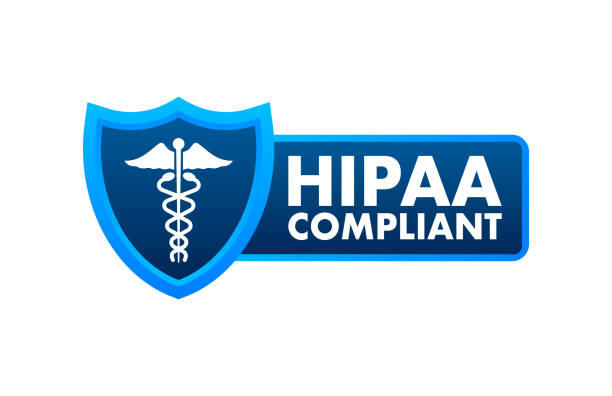HIPAA-compliant tools for child therapy are like a secure playground, protecting young clients’ data while delivering engaging cognitive behavioral therapy (CBT) for behavioral challenges. These tools, from teletherapy platforms to electronic health records (EHRs), ensure privacy and streamline practice management, letting therapists focus on care. Imagine a child safely joining a virtual session, feeling supported. Partner with Mental Health IT Solutions to implement secure tools that enhance therapy and build trust with families.
Table of Contents
• Why HIPAA compliance matters
• Select the right tools
• Use teletherapy platforms
• Implement secure EHR systems
• Incorporate safe messaging
• Support parent involvement
• Ensure mobile accessibility
• Train staff on compliance
• Monitor tool performance
• Maintain tool security
• How Mental Health IT Solutions can help
• Conclusion
Why HIPAA compliance matters
HIPAA compliance is like a sturdy gate, safeguarding young clients’ sensitive information during therapy. The Health Insurance Portability and Accountability Act sets strict standards for protecting electronic protected health information (ePHI), requiring encryption and business associate agreements (BAAs), per HIPAA Compliance for Therapists. Non-compliance risks fines up to $50,000 per violation, making secure tools essential for trust and legal protection in child therapy.
Select the right tools
Choosing tools is like picking the perfect toy, balancing engagement with safety. Platforms like SimplePractice offer teletherapy and EHRs, while TheraPlatform includes child-friendly interfaces, per Teletherapy Platform Development. Look for encryption, BAAs, and features like scheduling or parent portals. The table below compares tools, their features, and benefits, helping therapists select HIPAA-compliant solutions for young clients.
| Tool | Key Features | Benefit |
|---|---|---|
| SimplePractice | Teletherapy, EHR, client portal | Streamlines sessions and notes |
| TheraPlatform | Interactive games, secure chat | Engages kids, ensures privacy |
| TherapyNotes | EHR, billing, secure messaging | Simplifies documentation |
| ReadySetConnect | Team collaboration, teletherapy | Supports group therapy securely |
Use teletherapy platforms
Teletherapy platforms are like virtual therapy rooms, connecting therapists with young clients securely. Tools like Doxy.me and thera-LINK offer HIPAA-compliant video with end-to-end encryption, ideal for CBT exercises, per Mental Health UX/UI Design. Features like virtual whiteboards or waiting rooms enhance engagement, while BAAs ensure compliance. These platforms let kids join sessions from home, fostering consistent therapy participation.
Implement secure EHR systems
EHR systems are like digital filing cabinets, securely storing session notes and client data. Platforms like TherapyNotes and Ensora Mental Health provide HIPAA-compliant templates for CBT progress notes, per EHR Evolution in Mental Health. Encryption and two-factor authentication protect ePHI, while user-friendly interfaces simplify documentation. Secure EHRs help therapists track progress and maintain compliance effortlessly.
Incorporate safe messaging
Secure messaging is like a private mailbox, enabling safe communication with parents and clients. Tools like Updox and SimplePractice offer HIPAA-compliant messaging with encryption, per Social Media for Therapists. Therapists can share appointment reminders or CBT tips without risking data breaches. Avoid non-compliant apps like SMS or iMessage, which lack security, to maintain trust and compliance.
Support parent involvement
Parent-friendly features are like a window, keeping families informed while protecting privacy. Platforms like TheraPlatform include secure client portals where parents can schedule sessions or view progress, per Therapist Marketing Guide. HIPAA-compliant notifications and educational content, like CBT guides, empower parents to support their child’s therapy. These tools strengthen collaboration without compromising confidentiality.
Ensure mobile accessibility
Mobile accessibility is like a backpack, making therapy tools easy to use on the go. HIPAA-compliant platforms like ReadySetConnect, highlighted in posts on X, offer mobile apps with encrypted video and scheduling, per Practice Growth for Therapists. Responsive designs and offline modes ensure young clients and parents can access therapy resources anytime, enhancing engagement and compliance.
Train staff on compliance
Training is like a map, guiding staff to use tools correctly and maintain HIPAA compliance. Regular sessions on platforms like HIPAA One, which offers online courses, teach encryption protocols and data handling, per Why Therapists Need a Blog. Document training and conduct refresher courses to address policy changes, ensuring everyone protects young clients’ data effectively.
Monitor tool performance
Monitoring is like checking a pulse, ensuring tools perform securely and efficiently. Use analytics in platforms like SimplePractice to track usage, such as session frequency, while maintaining HIPAA compliance, per Lead Generation for Mental Health Professionals. Regular audits identify vulnerabilities, and user feedback highlights usability issues, keeping tools reliable for child therapy.
Maintain tool security
Maintenance is like tending a garden, keeping tools secure and up to date. Update software monthly to patch vulnerabilities, as recommended by Paubox, and back up data weekly to prevent loss, per SEO for Mental Health Therapists. Conduct risk assessments using tools like Scytale to ensure ongoing HIPAA compliance, protecting young clients’ information consistently.
How Mental Health IT Solutions can help
Navigating HIPAA-compliant tools can feel like solving a puzzle, but Mental Health IT Solutions is like a trusted partner for child therapists. They provide customized platforms like SimplePractice or TheraPlatform, integrating teletherapy, EHRs, and secure messaging tailored for CBT. Their services include staff training, performance monitoring, and security updates, ensuring compliance and engagement, per Teletherapy Platform Development.
Conclusion
HIPAA-compliant tools for child therapy create a safe, engaging space for young clients, enhancing CBT and protecting privacy. This guide has covered selecting tools, using teletherapy, ensuring secure messaging, and maintaining compliance. Each tool, from EHRs to mobile apps, supports better outcomes for kids. Your tools are a foundation for trust and care. Partner with Mental Health IT Solutions to implement secure solutions that empower your practice and families.







